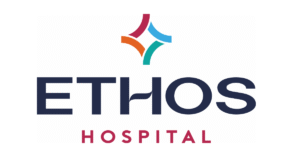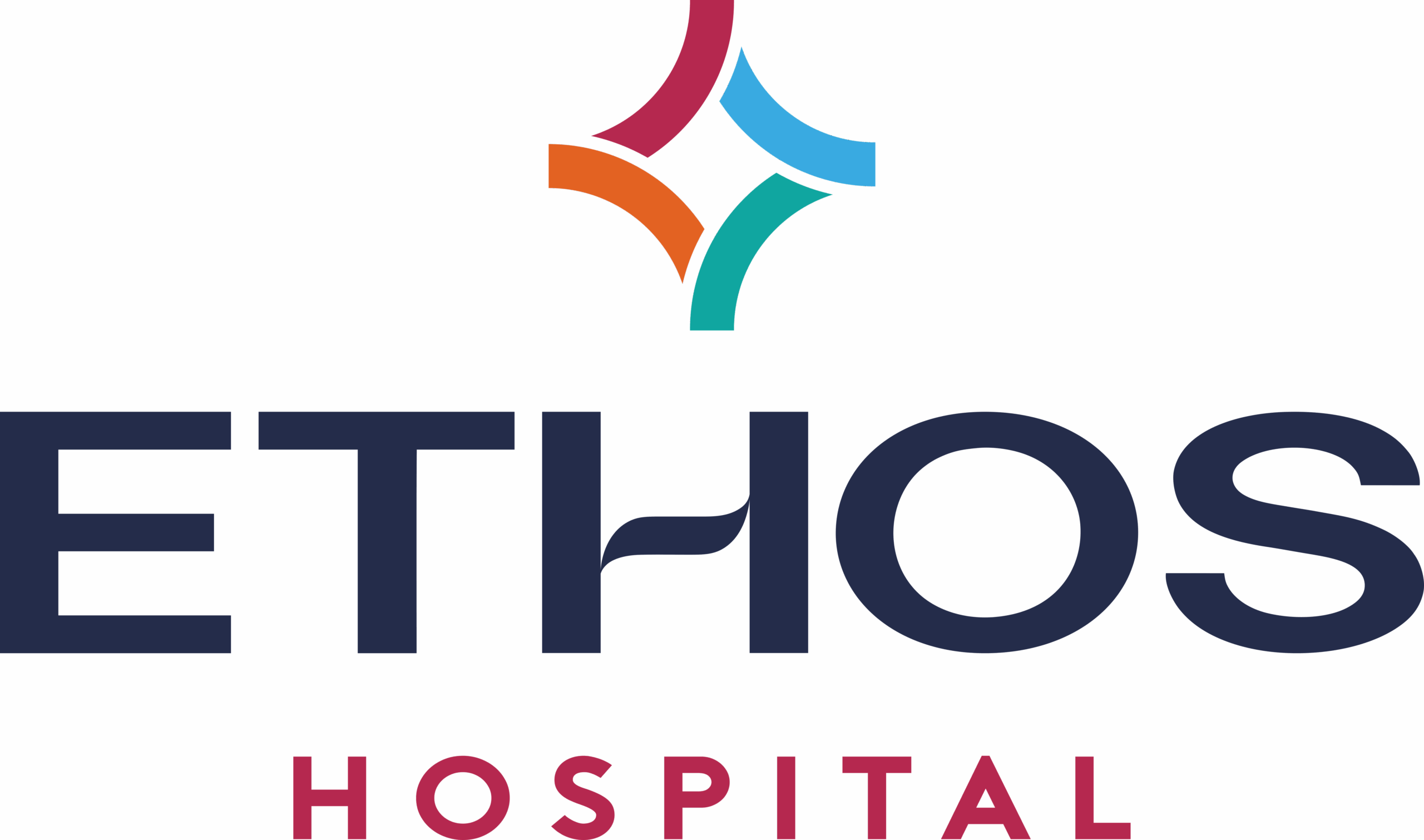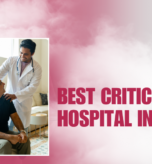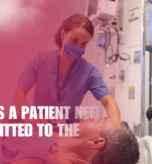Recovering from heart surgery is not just about healing from the operation-it is about making lifelong changes that protect and strengthen your heart for the future. Surgery may repair or improve a heart condition, but the real journey begins afterwards. The choices you make during recovery can shape your quality of life for years to come.
Positive lifestyle changes not only help speed up recovery but also minimise the risk of complications, improve overall well-being, and allow patients to lead healthier, more active lives. While each individual’s recovery path is unique, certain adjustments are universally recommended for building a stronger, healthier heart. Here are the top five lifestyle changes that can truly make a difference after heart surgery.
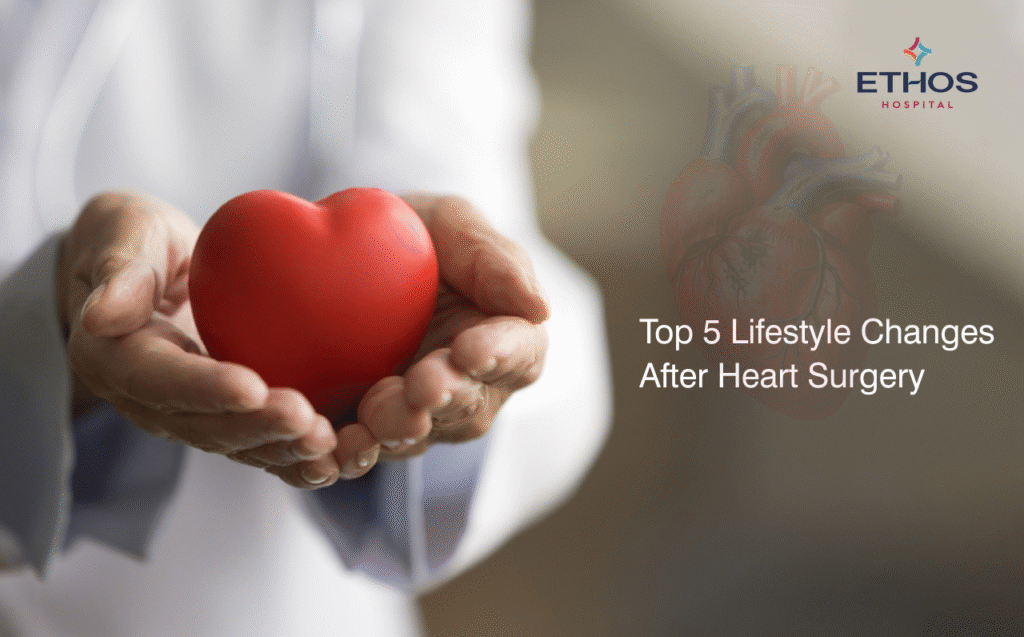
1. PRIORITISE A HEART-HEALTHY DIET
Food plays one of the most important roles in heart health. After surgery, your body needs the right nutrients to heal, strengthen, and function efficiently. A heart-healthy diet focuses on fresh, whole foods that nourish without overburdening the heart.
Include plenty of fruits, vegetables, whole grains, lean proteins like fish and chicken, and healthy fats from nuts, seeds, and olive oil. Foods rich in omega-3 fatty acids, such as salmon and flaxseeds, are particularly beneficial for the heart. At the same time, it’s equally important to reduce foods that put stress on your system—excess salt, refined sugar, fried snacks, red meat, and processed foods. It is best to limit salty foods, fried items, processed snacks, red meat, sugary drinks, and foods high in saturated fats, as they can strain your heart.
Another helpful habit is to eat smaller, balanced meals throughout the day rather than irregular heavy portions. Staying hydrated with sufficient water is also key, but avoid sugary drinks or excess caffeine. Consulting a dietitian can provide a personalised meal plan suited to your needs, ensuring your recovery diet supports long-term cardiac health.
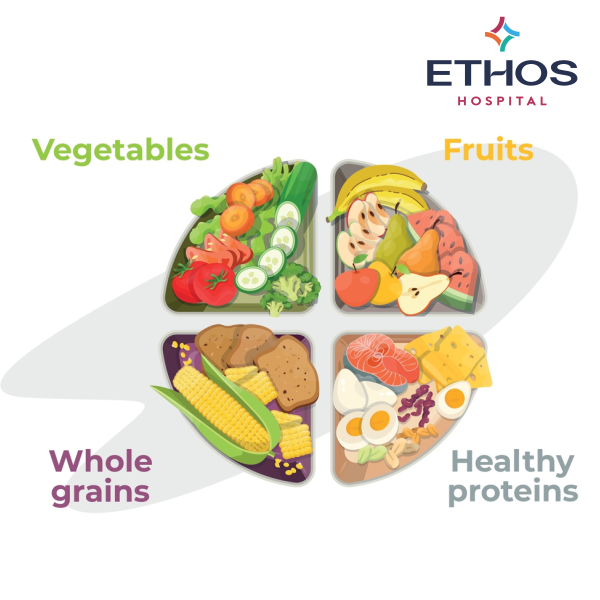
2. STAY PHYSICALLY ACTIVE
Physical activity is essential for recovery, but it should always be introduced gradually and safely. In the first few weeks, light walking is usually recommended to improve circulation, reduce stiffness, and prevent blood clots. As your strength returns, your doctor may advise you to add other forms of exercise such as cycling, swimming, or yoga.
The goal is not intense workouts but consistent, moderate activity that strengthens the heart muscle, helps manage weight, lowers blood pressure, and boosts mood. Cardiac rehabilitation programmes offered by hospitals are particularly helpful, as they provide supervised and structured exercise routines designed specifically for post-surgery patients. Most patients can start with short walks within a week of surgery, but structured exercises should only be added after your doctor’s approval or as part of a cardiac rehabilitation programme.
The key is to listen to your body-avoid overexertion, and always seek guidance before starting any new activity. Remember, recovery is a marathon, not a sprint, and regular gentle movement will do better than sporadic bursts of heavy exercise.

3. MANAGE STRESS EFFECTIVELY
Stress is often a hidden enemy of heart health, and after surgery, patients may feel anxious about their recovery or fearful of future complications. This makes stress management a vital part of healing.
Relaxation techniques such as deep breathing, meditation, mindfulness, and light stretching can significantly reduce stress. Engaging in hobbies like gardening, reading, or listening to music also helps calm the mind and bring emotional balance.
Support from family and friends is invaluable-talking openly about your concerns can reduce feelings of isolation. Many patients also find comfort in joining support groups, where they can share experiences with others who have undergone similar procedures.
If you feel persistently anxious, sad, or overwhelmed, do not hesitate to speak with a counsellor or doctor. Emotional health is just as important as physical recovery, and addressing it will contribute to faster, more complete healing.

4. QUIT SMOKING AND LIMIT ALCOHOL
If there is one lifestyle change that is non-negotiable after heart surgery, it is quitting smoking. Smoking damages blood vessels, reduces oxygen supply, raises blood pressure, and significantly increases the risk of heart disease recurring. Quitting smoking protects your heart and improves overall health almost immediately.
Alcohol consumption should also be approached with caution. While some patients may be allowed moderate amounts, for others it is best avoided altogether-especially if medications or other health conditions are involved. Alcohol can strain the heart and liver, interfere with medications, and contribute to dehydration. Always follow your doctor’s advice regarding safe levels of consumption.
Making these changes may feel challenging, but they are some of the most powerful steps you can take to safeguard your long-term health.

5. FOLLOW UP REGULARLY WITH YOUR DOCTOR
Heart surgery is only the beginning of your recovery journey. Regular medical follow-ups are critical to monitor heart function, adjust medications, and identify potential problems before they become serious.
Never skip scheduled appointments, and never stop taking prescribed medicines without consulting your doctor. Patients should also keep track of their blood pressure, cholesterol, and blood sugar levels at home or through routine check-ups.
Warning signs while experiencing complications include chest pain, shortness of breath, swelling in the legs, or irregular heartbeat. Seek immediate medical attention if you notice these symptoms. However, ongoing medical supervision ensures that your heart stays on the right track and that any complications are addressed quickly. Building a strong, trusting relationship with your healthcare team provides peace of mind and long-term protection.

CONCLUSION
Adopting these five lifestyle changes-eating a heart-healthy diet, staying physically active, managing stress, quitting smoking and limiting alcohol, and committing to regular follow- ups-empowers patients to recover well and enjoy healthier, longer lives after heart surgery. These changes are not just about healing the body; they are about building a sustainable foundation for lifelong heart health.
Every patient’s recovery journey is unique, which is why personalised medical guidance is essential. If you are seeking expert advice, specialist treatment, and comprehensive support for life after cardiac surgery, consult Ethos Hospitals’ experienced cardiologists and care team. With the right guidance, you can embrace a healthier future and keep your heart strong for years to come.
